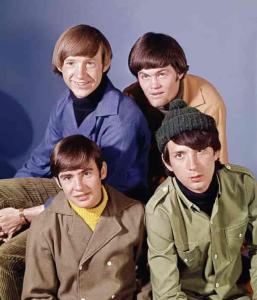
Source: Store Norske Lekisikon
I’m 28 years old, which means that when I think teen movies, I think sex comedies. American Pie (1999), Superbad (2007), and Project X (2012)—these carefree slices of Y2K and aughts (and honorary aughts) self-discovery are my hallmarks of teen sexual theology. Uncool boys pursue girls. Boys rag on each other. Hijinks ensue. None of that 80s heartwarming stuff. No Molly Ringwald. Bring on the Clinton-Bush-Obama degradation. Bring on the inadequacy and the failure. But make it funny. What could go wrong?
Despite these memories, I recently discovered a movie that seems to recall teen life in those years very differently, writer-director Becca Gleason’s debut feature, Summer ’03 (2018). The title deceived me. I was expecting some nostalgic celebration à la Stranger Things (2016-Present) and Summer of ’84 (2018). I was dead wrong. Gleason’s film is, instead, a sort of semi-serious tale of teen confusion, one that could be set anywhere between the rise of the Big Bopper and The Kid LAROI. What it tries to accomplish is a delicate take on the befuddlement intrinsic to young sexual awakening, and the ways in which single high school summers can feel like eons.
In this, it fails. This sort of tragicomedy is always a tightrope walk. Gleason’s movie tumbles because it indiscriminately mixes comedy and seriousness. In one scene, we’re treated to the awkward stylings of a teen forced to endure her grandmother’s dying advice (learn how to give good oral sex, more-or-less). In another, her father brings back his newfound real father (so her grandpa), who is an overt anti-Semite who (comedically?) torments her mother. Soon there after we’re treated to that same teen girl losing her virginity with all the saccharine overlay of an episode of One Tree Hill (which I’ve never seen but seems like the sort of show where soft alt rock wells up to youthful orgasm).
Now that sort of movement could work, were it not a vacillation. Summer ’03 promises to be messy as teen life is messy, but instead it comes across as, well, just plain messy, jerking back and forth between absurdity and would-be melodrama. Its “ethical” world is also unclear. Our protagonist, Jamie (Joey King) falls for a Catholic seminarian, Luke (Jack Kilmer). Unsurprisingly, this is doomed to failure. The movie never seem to decide if he’s an evil abuser who just wants to get his rocks off before going for the priesthood (this was how it all seemed to me), or an equally-confused youth who doesn’t fully understand the ramifications of his leading Jamie on (a take I’ve seen in more than one IMDb review). King and Kilmer acquit themselves well and manage the chaos as best they can, but, by the end, I had no idea if I was supposed to laugh and be inspired, or merely be horrified.
We can understand how this sort of tragicomedy can work in a fun teen movie if we turn to Boaz Davidson’s The Last American Virgin (1982). This movie opens like the John the Baptist to American Pie’s Jesus Christ. We have three best friends, nerdy dink Gary (Lawrence Monoson), chunky comedian and Jonah Hill forerunner David (Joe Rubbo), and hunk Rick (Steve Antin). They decide three girls at a local hangout might be interested in having sex, so they invite them to a “party” with “plenty of drugs.” The “party” is the six of them standing in Gary’s house while the boys pass off baking soda as cocaine. Of course, they’re all just dumb kids and the ploy works. Before long the two of the three girls have paired off with two of the three boys, leaving Joey to ineffectually flirt with the disinterested third. Soon his parents are home and all hell breaks loose, with heavyset David (sent outside to wait for his date to get naked) jumping on top of Gary’s mom. Hardy-har-har. Classic teen movie stuff.
If we begin with a rip-off of Porky’s (1981) (right down to the 50s feel and shower peeping scene), we end with a kick to the cinematic nuts. Gary’s crush, Karen (Diane Franklin) falls for Rick. Most of the movie is spent with Gary, unable to say anything and restrained by fear, praying she’ll come around. He sees his chance when Rick gets Karen pregnant and breaks up with her. In true even more pathetic than Richard Milhouse Nixon fashion, Gary offers her support, sells some of his prized possessions to secure her an abortion, and then watches her get back with his empty-headed Casanova of a best friend. The final shot is Gary driving home after realizing he’s failed, tears trickling down his face in dim light. It holds for a few seconds and we (or at least I) ask what the hell we just watched.
The Last American Virgin surprises us. It builds, lulls us in with the promise of Porky’s 2: Naked Ladies Galore and reverse the whole formula. Teen life can be tragic, filled with failure and regret, with paralysis and torment. But even when it is these things it’s still often funny, filled with hijinks (in retrospect anyway). Summer ’03 is too on the nose; it neither builds nor moves, but simply asks us to take the good with the bad. There’s no perspective. And while it’s true in life (and especially teen life) that any objective vantage point is impossible, we go to the movies for a distillation of life’s aches, pains, gaffes, and guffaws. For that, see the Davidson and skip the Gleason. Cry tears and watch teen boys admit the biggest nerd is the most well-endowed.













